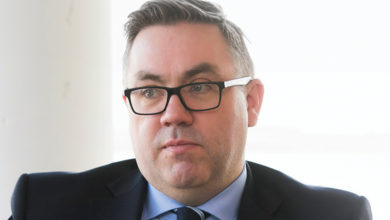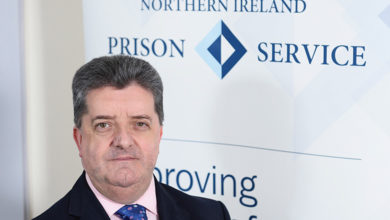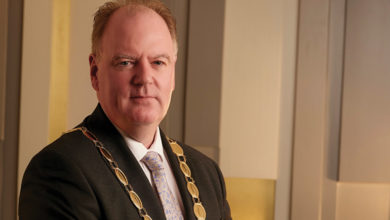Fairer legal aid?
Ryan Jennings looks at the proposed changes to legal aid payments in Northern Ireland.
It is a fundamental principle of justice in the UK that those who are unable to pay for their own defence have a right to legal aid.
Two Court Service consultations have been released in an attempt to bring system in line with England and Wales and to reduce the amount spent on criminal legal aid cases in Northern Ireland.
The legal aid budget in Northern Ireland currently stands at £90 million, with £19 million of that being spent on criminal cases and £17 million ‘very high cost’ cases. The system here allows more readily for a defendant to be represented by more than one counsel – usually a Queen’s Counsel and a junior counsel – than in England and Wales.
In England and Wales, those charges on which defendants can be granted an additional counsel in Northern Ireland generally do not apply.
Other, more specific, factors must be met for a court to allow more than one representative i.e. the number of prosecution witnesses exceeding 80 and the prosecution evidence running to over 1,000 pages.
Applying those more limited conditions to Northern Ireland, the Court Service says £1.5 million could be saved per year.
Rules set out in 2005 govern payments to solicitors and barristers who provide defence services for criminal cases at crown court.
Solicitors provide defences in criminal cases by way of standard fees with the exception of large fee cases. They are paid, mainly, by hourly rates.
Barristers’ fees are more complex; they will charge a ‘brief fee’ for taking a case on. There is no hourly charge. They do, however, pay a percentage of their fees towards professional overheads.
Proposed changes to that system would see the Graduated Fee Scheme (GFS) being introduced to Northern Ireland. The GFS would cover those cases which do not fall into ‘high cost cases’ or ‘very high cost cases’. The scheme would also set out when additional counsels would be permitted and additional payment to a basic fee would be based on the number of pages of evidence and the duration of a trial.
That system has been in place in England and Wales since 2007, though according to the Ministry of Justice, that jurisdiction’s expenditure on legal aid still remains “high”.
Switching to the GFS would result in a 57 per cent reduction in fees for solicitors and 30 per cent for barristers.
Comparing Ministry of Justice and Court Service data, the service found that the latter had permitted two counsels being present for 41 per cent of cases. In England and Wales, the figure for two counsels was 2 per cent.
In terms of offences being trialled at crown court, 58 per cent of cases in Northern Ireland were attended by two representatives, whereas in England and Wales it was only 5 per cent.
The work carried out in both jurisdictions is essentially the same, the consultation says, and therefore there should be no reason why fees for that work should be broadly the same.
In 2007, when England and Wales adopted the GFS, agendaNi understands that nearly half of the solicitors who had previously accepted legal aid cases stopped doing so. Indeed in some parts of the south of England it was estimated that there was not a legal aid case accepting solicitor within 35 miles.
The fear which both the Law Society and Bar Council have voiced is that a two-tier system would emerge, with only those able to pay having access to the best legal representation.
Law Society spokesman Donald Eakin told agendaNi that he sees the Court Service’s proposal as simply “transposing the English system into Northern Ireland … where it is just not appropriate”.
The crown court in England and Wales, he says, hears many more low level cases than in the province. Those lower level cases, he explains, would generally be heard in a magistrate’s court in Northern Ireland. Across the water, cases can go directly to the crown court, by-passing the magistrates.
At any rate, prosecution cases are managed differently in both jurisdictions. In England and Wales it is the Crown Prosecution Service, whereas in Northern Ireland, it is the Public Prosecution Service which holds that responsibility. Cases here, Eakin suggests, generally take a much longer length of time, which he says is a “perennial problem”, hence larger fees.
With that in mind, he admits that while the process is not ideal, the proposed changes will not impact on the length of cases. He would, though, be “happy enough” to have a more streamlined process of justice: “It is not it the interest of justice to have it running on for long periods of time.” In short, he knows reform is needed.
“This is public money that is being paid out and quite rightly that needs to be published,” he says. The figure published by the Legal Services Commission, he contends, includes initial outlays of £1.2 million and £200,000 in VAT payments, along with £100,000 for counsel. The real figure, by his calculations, is less than half that quoted.
A review of the scheme in England in Wales began in November and is due to be concluded by Easter. The Law Society understands that it will be highly critical, given the difficulties it has faced and the consequences of it.
For Eakin it would make more sense to propose any changes to the system here after that review has been conducted.
“There are no fat cat solicitors,” he said. “The call-out rate for a solicitor to attend a police station is £43.35, with a one-third uplift after seven o’clock, which is favourable to any tradesman at that hour.”
In a statement to agendaNi, the Bar Council said it is committed to promoting the widest possible access to justice for all members of the public. It is generally supportive of the need to manage fees fairly in order to continue to provide counsel to those who need it most.
The council said that as far back as 2005 it agreed to a reduction in fees of up to 50 per cent in some cases to ensure that the period for payments (often as long as 10 years) could be shortened.
However it argued that the new proposed system has not worked in England and Wales and has resulted in increased delays for major cases and barristers opting out of criminal work.
The consultation of introducing the GFS in Northern Ireland ended on 4 December 2009. Should the changes be made law, they will take effect from 1 February 2010. The reducing the legal representation provided through criminal legal aid consultation ends on 18 December.







